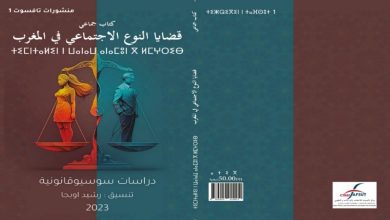
This book:
Cultural justice is of paramount importance in establishing a society of citizenship and democracy, where all cultures and languages find their rightful place within the framework of linguistic and cultural citizenship.
If the right to be different is one of the pillars of democracy, then a democratic society where human rights prevail cannot be established without acknowledging the central role of the cultural rights of peoples, thereby enshrining the cultural pluralism for which a number of social movements, as well as indigenous peoples, have struggled.
This collective book attempts to address the issue of the Amazigh language in light of the challenges of cultural justice in Morocco, by drawing on a theoretical background derived from multiple fields of knowledge (political philosophy, law, sociology, anthropology, etc.). It aims to examine cultural policy in Morocco and its fairness towards the Amazigh language. How has the right to be different been managed, and to what extent have the challenges of recognition been met?
It primarily addresses the issue of identity and linguistic diversity in Morocco and North Africa in general, in addition to examining the understanding and representation of cultural justice in the discourse of the Amazigh movement in Morocco. It also attempts to evaluate the implementation of the official status of the Amazigh language in light of public policies.
The book, comprising 215 pages, is published by the Tafsut Center for Research, Studies and Training and the Tilelli Adrar Association, coordinated by Rachid Oubejja and brahim Boufi.



